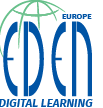
- This event has passed.

Open Education Week (OEW) – March 3-7, 2025 – JOIN AND NETWORK!
March 3, 2025 @ 08:00 – March 7, 2025 @ 17:00
Open Education Week is a celebration of the global Open Education Movement. Its goal is to raise awareness about the movement and its impact on teaching and learning worldwide and to free and open educational opportunities for everyone everywhere.
EDEN is endorsing Open Education Week and is now organising EDEN DLE OEW for the ninth time. We want to highlight how open education can help people meet their education goals, whether developing skills and knowledge for work, supporting formal studies, learning something new for personal interest, or looking for additional teaching resources.
Join us for the following events – participation is free and open!
Remember to register. EDEN will issue open badges to acknowledge and appreciate your event participation.
Be sure to mark March 3-7 on your calendar!
During the Open Education Week, EDEN DLE offers the following online events:
Title: Using Open Educational Resources and AI to cocreate and deliver Digital Energy know-how to European citizens
Description: Artificial Intelligence and the Future of Teaching and Learning are important for educators, teachers, students and policymakers. The Every1 project (https://every1.energy) is actively exploring the use of AI tools to support the creation and delivery of Digital Energy know-how to European citizens. Every1 brings together leading experts in energy, education, energy ecosystems and the social sciences to enable all European stakeholders to participate effectively in the digital energy market.
This session will consist of 3 international speakers, Irina Rets, Beck Pitt and Chris Edwards, who will present their current research in the Every1 European funded project. They will also situate their work within a framework of current challenges and opportunities. Then it is over to you, the audience, to participate in a lively debate about these issues, chaired by Denise Whitelock, who has spent her career developing AI systems for Teaching and Learning.
Format: Presentations and discussion with participants
Moderator: Professor Denise Whitelock, Institute of Educational Technology at the Open University, UK,EDEN DLE Vice-president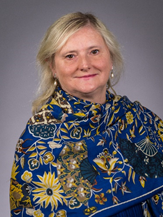
Professor Denise Whitelock is the Director of the Institute of Educational Technology at the Open University. She is a Professor of Technology Enhanced Learning and has over twenty-five years’ experience in Artificial Intelligence for designing, researching and evaluating online and computer-based learning in Higher Education.
She led the Supportive Automated Feedback for Short Essays (SafeSea) project funded by the Engineering and Physical Sciences Research Council with Oxford University, providing students with automatic feedback on electronic drafts of their assignments supplementing tutor support.
She is currently leading the UK’s contribution to two European projects. The first is Generative AI anD large language Models In higher educaTion (ADMIT) aims to establish the necessary educational and ethical conditions that enable the utilisation of large language models (LLM) and generative AI as a means of enhancing teaching and learning in higher education. Every1( Enable EVeryone’s Engagement in the eneRgY transition) is the second project, which brings together leading experts in energy, education, energy ecosystems and the social sciences to enable all European stakeholders to participate effectively in the digital energy market.
In 2018, she was appointed Editor of Open Learning: The Journal of Open, Distance & e-Learning. Her work has received international recognition through visiting Chairs at the Autonoma University, Barcelona and the British University in Dubai. Denise is currently a serving Board Member, Fellow and Vice President of Research for EDEN Digital Learning Europe. Denise is also a Fellow of the Academy of Social Sciences. For a complete publication list, see: http://oro.open.ac.uk/view/person/dmw8.html.
Speakers:
Dr. Beck Pitt, Institute of Educational Technology at the Open University, UK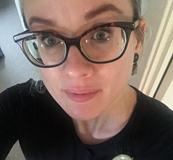
Dr. Beck Pitt is a Senior Research Fellow based at The Institute of Educational Technology (IET) at The Open University (UK) and Co-Director of the Global OER Graduate Network (GO-GN). She has worked in UK Higher Education for over 18 years in both co-ordination and research roles, on multi-partner, international projects.
Since joining The Open University (OUUK) in June 2011, Beck has worked in a variety of capacities on open education projects, and since January 2013 in a full-time research capacity as a member of the award winning, internationally renowned OER Hub team. Beck’s work particularly focuses on open textbooks, open course development and open pedagogies. Beck has extensive experience of successful collaboration with stakeholders in a wide variety of contexts including South Africa, Myanmar, Viet Nam, Kenya, Canada, the United States and across Europe.
Beck has led and contributed to a range of international projects, including as co-investigator for the Global OER Graduate Network (GO-GN) from October 2019 until June 2024, before becoming Co-Director and Co-Principal Investigator of the network from July 2024 onwards. GO-GN is the only global network solely dedicated to supporting doctoral researchers internationally working on open education. Other projects that Beck has led or contributed to include as Principal Investigator for The British Council in Viet Nam funded Digital Transformation in Viet Nam Higher Education Scoping Study and co-Investigator for the UK Open Textbooks project.
Beck regularly represents the OUUK at high-profile events and conferences around the world, presenting at more than 100 conferences, workshops and events internationally to date. She is a member of the OUUK’s Open Research Group, editorial board member of the Journal for Interactive Media in Education (JIME) and co-organiser of the Computers and Learning Research Group (CALRG).
More on Beck’s research: https://iet.open.ac.uk/people/beck.pitt
Beck’s publications: https://oro.open.ac.uk/view/person/rep237.html
Dr. Irina Rets, Institute of Educational Technology at the Open University, UK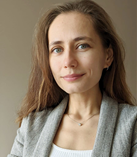
Dr Irina Rets is a senior research fellow at the Institute of Educational Technology (IET), the Open University, UK. Irina has twelve years of experience as an assistant professor, lecturer, and researcher in applied linguistics and technology-enhanced learning. With expertise in inclusive artificial intelligence (AI) and linguistics, Irina’s current research explores how technology can be leveraged to improve social justice in the learning contexts and more generally, in society. She currently works on a large-scale Erasmus+ project – “Empowering Everyone’s Engagement in Energy (Every1)” – investigating how to enable the effective participation of all European stakeholders in the digital energy market.
Irina’s research has been published in prestigious outlets, including among others the Journal of Computer Assisted Learning, Interactive Learning Environments, International Journal of Ed Tech in HE, Computer Assisted Language Learning, ReCALL, Journal of Strategic Information Systems, Routledge, and in such CORE A conference proceedings, as Learning at Scale.
Irina is actively engaged in moving from research findings to impact. She does so through publishing policy-oriented outputs, developing and presenting an impact strategy of her research projects at international events, communicating via knowledge exchange platforms, such as the LSE Impact Blog, Times Higher Education, and writing open accessible summaries of her published studies.
For more information, please see https://iet.open.ac.uk/people/irina.rets
Chris Edwards, Institute of Educational Technology at the Open University, UK
Chris Edwards is a senior lecturer in the Institute of Educational Technology with over twenty five years’ experience teaching at the OU including chairing Masters modules in the Masters for Online and Distance Education and the Masters in Online Teaching. Chris has a strong research interest in using data to better understand the student experience and has developed the OU Pathways model which has proven successful in opening a new window on the OU’s data. He has also co-investigated the Horizon funded An Adaptive Trust-based e-Assessment System for Learning (TeSLA) project that developed and trialled a platform hosting a suite of authentication tools to improve trust in online assessment and the ongoing Enable eVeryone’s Engagement in the eneRgY transitiON (Every1) project which is building networks, materials and learning paths to assist in ensuring all Europeans are included in the energy transition.
Chris has led the pilot of the AI based Open Essay Optimiser within the OU and is now a Co-I on the EU funded Generative AI anD large language Models In higher educaTion (ADMIT) which has brought 12 partner organisations together to track the use of GenAI in higher education and to develop training and guidance on its use, on ethical considerations and on policy. He is currently trialling the potential for Gen AI to contribute to the creation of new courses and contributing to a project on the student facing use of the technology within the OU.
Title: Graphic Novel, Generative AI, and Gamification
Description: The webinar “Graphic Novel, Generative AI, and Gamification” aims to explore how emerging technologies and innovative pedagogical approaches can reshape the educational landscape. Our distinguished panel of speakers—Prof. Antonella Poce (University of Roma Tor Vergata), Dr. Gemma Tur Ferrer (University of the Balearic Islands), and researcher Bianca Ricci (University of Roma Tor Vergata)—will discuss the intersection of visual storytelling, AI-driven tools, and playful learning. The session will delve into how graphic novels can foster creativity and critical thinking, how generative AI can enhance personalised learning experiences, and the impact of gamification in boosting engagement and motivation. Drawing on the speakers’ diverse expertise in museum education, ePortfolios, and electronic engineering, the webinar will present research findings, best practices, and cutting-edge applications suitable for academic and informal education settings. Attendees will gain insights into designing innovative, learner-centred experiences that respond to the ever-evolving demands of contemporary education
Moderator: Carlo De Medio, the University of Tor Vergata, Italy, EDEN NAP SC memeber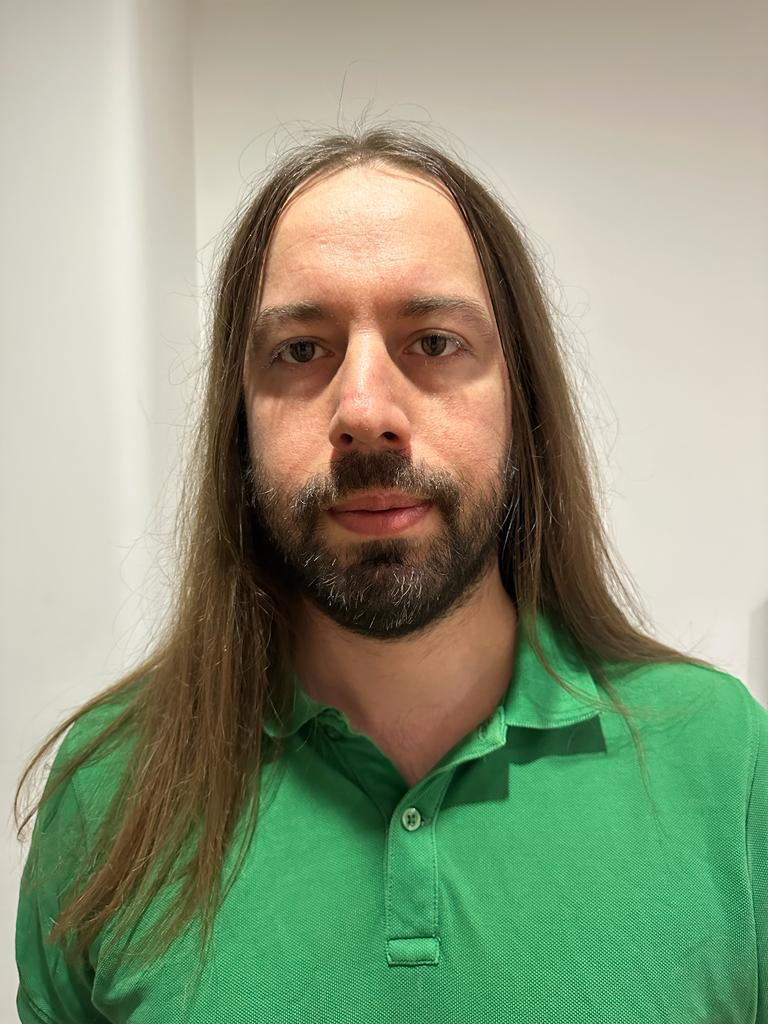
Carlo De Medio is a research fellow at the Department of Electronic Engineering at the University of Tor Vergata. He is qualified as an Associate Professor in Experimental Pedagogy. He has been collaborating with the Museum Education Center (Univ. Roma Tre) from 2019 and with the INTELLECT Centre (Tor Vergata and Modena and Reggio Emilia Universities) from 2022. He has participated in national and European research projects in the fields of museum education, the development of transversal and digital skills, the promotion and assessment of Critical Thinking, as well as innovative teaching methodologies supported by VR, AR, and AI-based technologies. He is part of the EDEN DLE (Digital Learning Europe) NAP (Network of Academics and Professionals) Board. He regularly takes part in conferences at national and international level. He published different articles and one book on the above subjects.
Speakers:
Antonella Poce, University of Tor Vergata, Italy, EDEN DLE MB member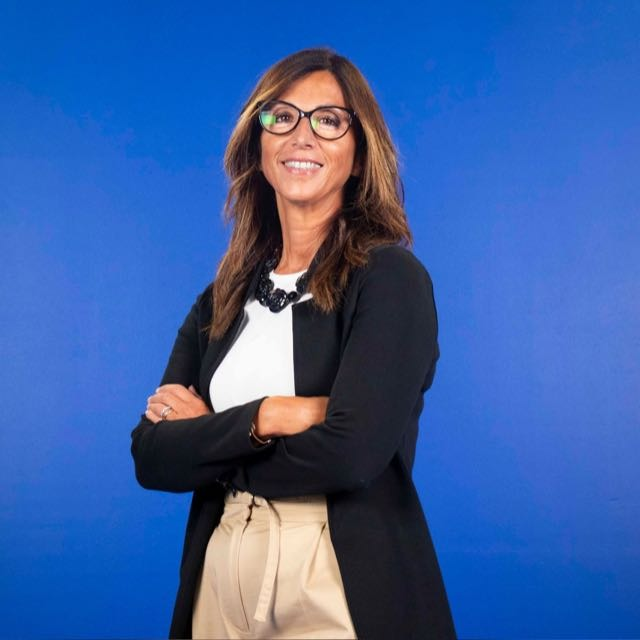
Antonella Poce is a full Professor in Experimental Pedagogy at the department of History, Heritage, Education and Society of the University of Roma Tor Vergata. She teaches Experimental Pedagogy, Educational Research Methodology, Museum Education. From December 2020 to February 2023, she was full professor in the same subject at the Dept. of Education and Humanities, University of Modena and Reggio Emilia, where she chaired the INTELLECT International Research Centre for Research into Heritage and Museum Education, Well-being and Teaching Technology. She still coordinates the following joint (UNIMORE/UNIROMATRE) degrees: the annual postgraduate course “Museum Education ” and biennial post graduate course “Advanced Studies in Museum Education”. Her research concerns innovative teaching practices in higher education at national and international level. She is EDEN (European Distance and E-learning Network) senior fellow and presently member of the managing board. She coordinates national and international research groups within European project frameworks, and she has been chairing international academic committees dealing with assessment and distance learning. She used to be a member of the AEA- Europe Council Board (since 2012 to 2016) where chaired the Professional Development Committee (since 2013 to 2016). In 2011, she was elected member of the EDEN (European Distance and E-Learning Network) – NAP (Network of Academics and Professionals) Steering Committee. She chaired the EDEN NAP SC from 2017 to 2020. She has been a member of ICOM (International Council of Museums) since 2003 (CECA Committee for Education and Cultural Action since 2003 and UMAC Universities Museums and Collections since 2019 so far). She is the author of different publications of national and international relevance on the topics of innovation, assessment, and use of technology in teaching and learning, in the context of heritage experiences.
Gemma Tur Ferrer, University of Balearic Islands, Spain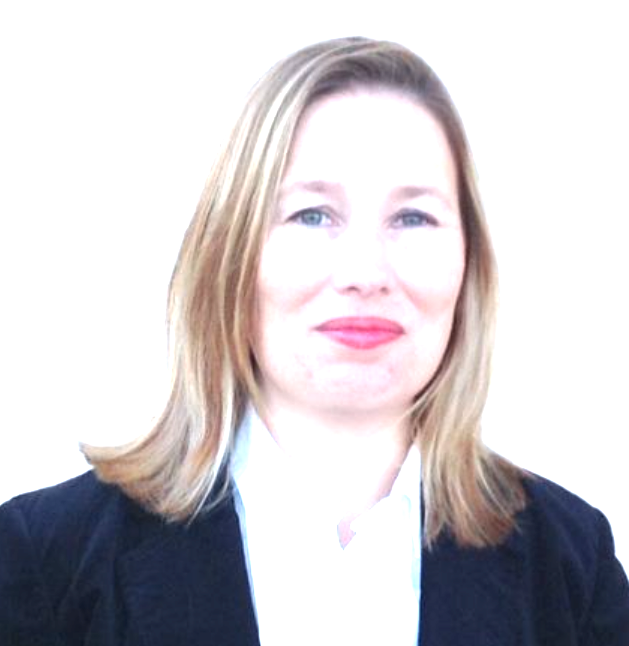
Gemma Tur Ferrer: Educational technologist with a PhD in ePortfolios (University of the Balearic Islands, 2013). She holds a Teacher Education degree (UIB, 1998), a degree in Education Sciences (UNED, 2006), and an MA in Educational Technology (UIB, 2011).
She is the School of Education coordinator at the satellite campus in Ibiza of the University of the Balearic Islands (UIB), where she is an associate lecturer in Teacher Education programmes, for both Infant and Primary Teacher Education. Also, she is lecturer in the MA programme in Secondary Teacher Education, which she coordinates. She is in charge of other educational programmes such as the Senior Open University and the Summer University of Ibiza and Formentera. I arrived at the Univeristy after ten years as an English Primary teacher (1999-2009).
As for research, she collaborate with the Group of Educational Technology (GTE) at the UIB. Her main research interests are focused on educational technology such as eportfolios, Personal Learning Environments, the social media in education and, in general, technology in Teacher Education.
Bianca Ricci, University of Rome Tor Vergata, Italy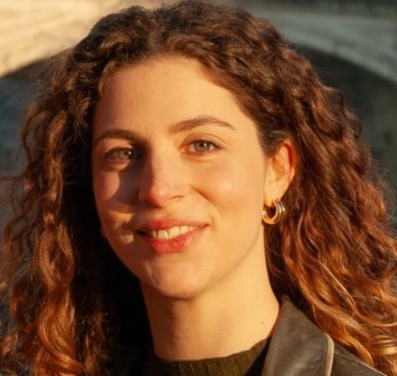
Bianca Ricci is a graphic and visual designer based in Rome. She earned her Bachelor’s degree from the University of Florence in 2021 and her Master’s degree in Visual and Innovation Design from RUFA – Rome University of Fine Arts in 2024. She is currently employed as a research fellow at the University of Rome Tor Vergata.
Title: How GenAI is Reshaping the Open Education Practices?
Description: Recent studies have been reporting how the emergence of generative AI (Gen AI) is rapidly transforming education worldwide. New major initiatives such as MIT Open Learning’s AI + Open Education and many smaller institutional and local projects explore how GenAI can enhance the quality of Open Education Practices (OEP) by enhancing accessibility, personalisation, content creation, and collaboration. However, in what ways are these experiences changing the nature and process of open learning? As the pace of change accelerates, there’s a need to consolidate a critical discussion on these developments’ ontological and epistemological implications. In this panel, the EDEN Senior Fellows with extensive experience in OEP will address these issues from multiple theoretical and practical perspectives and compare the experiences from different regional contexts. The discussion will examine how GenAI is augmenting existing practices and potentially redefining the fundamental nature of open learning.
Format: Presentations and discussion with participants
Moderator: António M. Teixeira, Universidade Aberta, Portugal, EDEN Senior Fellow and EDEN Fellows Council Board member 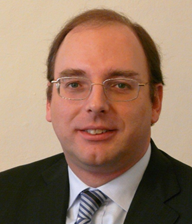
António M. Teixeira is an EDEN Senior Fellow and an EDEN Fellows Council Board member. He was President (2013-16) and vice president (2010-13) of EDEN. António is an Associate Professor with tenure at Universidade Aberta (UAb) and a member of the Department of Education and Distance Learning, which he headed from 2016 to 2020. He’s also a researcher at the the Distance and eLearning Lab (LEaD) at UAb, and the University of Lisbon’s Centre of Philosophy. From 2006 to 2009, he was Pro-rector for innovation in Distance Learning at Universidade Aberta. Throughout the years, he has integrated several boards of directors and many expert committees and task forces in higher education institutions and organizations at national and international level. António has participated in over thirty international research projects and authored over two hundred scientific articles and other publications. His main research interests are educational innovation and learning futures, open education, particularly MOOCs, distance learning, and educational ethics.
Speakers:
Diana Andone, Polytechnical University of Timisoara, Romania, EDEN Senior Fellow and EDEN Fellows Council Board member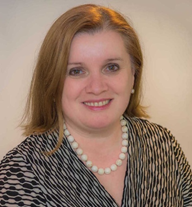
Diana Andone is an EDEN Senior Fellow and EDEN Fellows Council Board member. Diana is the Director of the eLearning Centre at the Polytechnical University of Timisoara in Romania. Diana runs the team who developed the university’s award wining Virtual Campus CVUPT and is also a lecturer at the Politehnica University of Timisoara, Romania, in multimedia and web technologies. She is passionate about ubiquitous access to technologies and how they can be used to improve people’s life. Diana holds a PhD in Designing eLearning Spaces for Digital Students from the University of Brighton, UK, an MA in European Studies, an Learning about Open Learning, postgraduate distance education course at the Herriott-Watt University, Edinburgh, UK; an MSc in Artificial Intelligence at the Polytechnical University of Timisoara, Romania. Her publication list comprises 9 books and 82 papers presented at international conferences, she is a reviewer for 12 International Conferences, 4 journals, 6 best paper awards at different conferences and, since 2010 Co-chair at the IADIS WWW/Internet International Conference.
Inés Gil-Jaureña Faculty of Education at the National Distance Education University, Spain, an EDEN Senior Fellow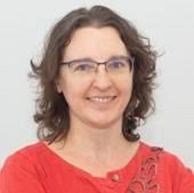
Inés Gil Jaurena is an EDEN Senior Fellow and a past member of EDEN Fellows Council Board and the Steering Committee of the EDEN Network of Academic and Professionals (EDEN NAP). She holds a PhD in Education and is an Associate Professor at the Faculty of Education at the National Distance Education University (Universidad Nacional de Educación a Distancia-UNED), Spain. She has been Editor-in-chief of Open Praxis, a scientific journal published by the International Council for Open and Distance Education (ICDE), in the period 2012-2022. She is a member of the Steering Committee of the UNESCO Chair in Distance Education, based at UNED. She coordinates the CO-Lab teaching innovation group at UNED.
Gila Kurtz, Faculty of Instructional Technologies at the Holon Institute of Technology, Israel, EDEN Senior Fellow and an EDEN Fellows Council Board member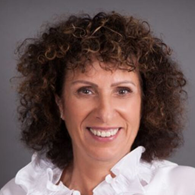
Gila Kurtz is an EDEN Senior Fellow and an EDEN Fellows Council Board member. She’s also a member of the Steering Committee of EDEN. Gila is the Dean of the Faculty of Instructional Technologies at the Holon Institute of Technology (HIT) in Israel. She has a wealth of experience, having served as the Academic Vice President at a company specializing in e-learning solutions for the corporate sector for several years. Other positions include being the Editor-in-Chief of The Interdisciplinary Journal of E-Skills and Lifelong Learning (IJELL). Gila has been a visiting scholar at the University of Maryland University College, University of California Berkeley, Syracuse University and University Roma, TRE.
Paul Prinsloo, Open and Distance eLearning (ODeL) at the University of South Africa, EDEN Senior Fellow and EDEN Fellows Council Board member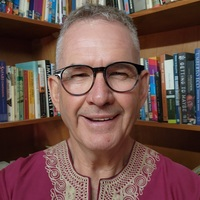
Paul Prinsloo is an EDEN Senior Fellow and EDEN Fellows Council Board member. Paul is a Research Professor in Open and Distance eLearning (ODeL) at the University of South Africa (Unisa). He is a visiting professor at the National Open University of Nigeria (NOUN), a Research Associate for Contact North/Contact Nord (Canada), a member of the Centre for Open Education Research at the Carl von Ossietzky University of Oldenburg (Germany), a Senior Fellow of the European Distance and E-Learning Network (EDEN) and serves on several editorial boards. Paul has published numerous articles in the fields of teaching and learning, student success in distributed learning contexts, the ethical collection, analysis, and use of student data in learning analytics, and digital identities.
Title: The Evolving Story of Open Education – Expanding Access, Furthering Equity, and Reckoning with Ongoing Challenges
Description: Join us for an engaging and thought-provoking panel discussion featuring distinguished speakers from Irish higher education and co-developers of the open educational resource Using OER and OEP for Teaching and Learning at Ireland’s National Forum for the Enhancement of Teaching and Learning in Higher Education.
Catherine Cronin, Claire McAvinia, Celine Peignen, and Angélica Rísquez—renowned critical advocates for Open Education—will critically examine the progress, challenges, and future of open education in higher education. The discussion will explore key issues such as sustainability, funding, accessibility, equity, issues posed by the rise of GenAI, and the persistent lack of systemic change in policy and practice.
Be part of this dynamic conversation, challenge prevailing assumptions, and share your insights as we navigate the current realities of Open Education.
Moderator: Dr Sandra Kučina Softić, University of Zagreb University Computing Centre, EDEN DLE Vice president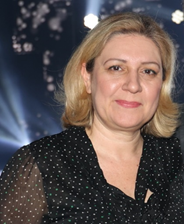
Dr Sandra Kučina Softić is the vice president of EDEN Digital Learning Europe, Assistant Director at the University of Zagreb University Computing Centre (Croatia) and Head of the E-learning Centre. She has over 25 years of experience working in higher education. Her work is focused on monitoring and fostering e-learning in Croatian higher education and providing support and advice to institutions, teachers and students in implementing new technologies in learning and teaching. She has a master’s degree in Digital Education from the University of Edinburgh, UK, and a PhD in Information and Communication Technologies from the University of Zagreb, Croatia. In 2021, she authored a book on digital transformation in higher education (published in Croatian). She is a professor at the University of Mostar, Bosnia and Herzegovina, DOBA University, Slovenia and University North, Croatia. She was EDEN president 2019- 2022. Since 2023, she has been EDEN DLE Vice-President for Open Professional Collaboration.
Speakers:
Céline Peignen, Technological University of the Shannon, Ireland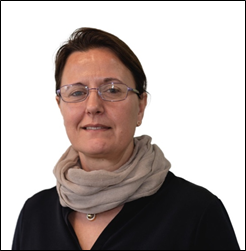
Céline Peignen is the Head Librarian at the Technological University of the Shannon (TUS), Ireland. She has significant experience leading Open Educational Resources (OER) initiatives. Over the past five years, she has driven the TUS OER project, positioning the university as a leader in Open Educational Resources and Practices in Ireland. This work has involved the development of TUS Open Press, the hire of the first OER Librarian in Ireland, the creation of an OER index used globally, strategic collaboration with other institutions, and advocacy for Open Access and OER integration in teaching and learning materials. With colleagues of the European Network for Open Education Librarians, she was the recipient of an OER Global award in 2023, recognising the work done by the network to support librarians in Ukraine.
Dr Claire McAvinia, Centre for Academic Practice, Trinity College Dublin, Ireland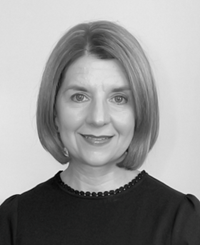
Dr Claire McAvinia is an Academic Developer at the Centre for Academic Practice, Trinity College Dublin, working with colleagues to provide expertise in learning, teaching, and assessment in higher education. She has over 25 years of experience in related roles at TU Dublin, Maynooth University, and University College London. Claire completed a secondment with Ireland’s National Forum for the Enhancement of Teaching and Learning in 2021. She is a Fellow of the UK’s Staff and Educational Development Association (SEDA) and Advance HE. Together with Dr Róisín Donnelly and Dr Kevin O’Rourke, she co-edits the open access Irish Journal of Academic Practice. Claire holds a BA and PhD from Trinity College Dublin, an MA from the University of Kent, and MA in Online and Distance Education from the UK Open University. Her research interests are in all aspects of academic professional development, open education, and post-digital learning spaces in higher education.
Dr Angélica Rísquez, Centre for Transformative Learning, University of Limerick, Ireland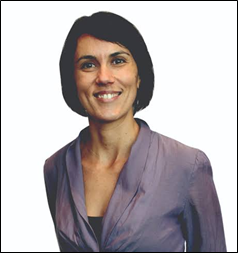
Dr Angélica Rísquez is a Lead Educational Developer at the Centre for Transformative Learning, University of Limerick. She has over 20 years of experience in higher education, is a senior fellow at SEDA, and won the Pedagogical Awards 2024 (UL) with the project ‘STELA Live: Learning Analytics for Student Success‘. She teaches at the postgraduate level in the Graduate Diploma in Teaching, Learning and Scholarship in UL, and the Masters in Career Guidance in UNED. She has led innovation and research projects funded nationally and internationally around digital capacity and open educational practice. She has extensively published in different areas related to technology enhanced learning. Her current research interests include blended and online learning, digital capacity in higher education, and learning analytics for student success.
